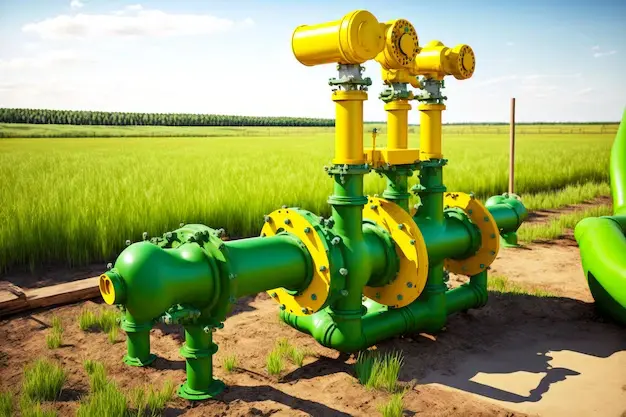How to Start an Irrigation Well Drilling Business for Farms
- Oct 1, 2025
- 2 min read
With agriculture relying heavily on consistent water access, irrigation wells are a vital resource for farms across the United States. Starting an irrigation well drilling business can be a profitable and impactful venture—especially in regions with seasonal droughts or expanding crop production.

Here’s a step-by-step guide to help you launch your business and serve the farming community effectively.
1. Understand the Agricultural Market
Farms rely on irrigation wells to maintain crop health, manage water costs, and ensure consistent yields. Your target clients may include:
Row crop farms
Orchards and vineyards
Livestock operations
Greenhouses and nurseries
Understanding seasonal water demands and regional soil conditions will help you tailor your services effectively.
2. Create a Business Plan
A solid business plan should outline:
Services offered (drilling, pump installation, water testing)
Target regions and farm types
Equipment and staffing needs
Pricing structure and revenue goals
Marketing strategies
Resources like FinModelsLab offer templates for drilling businesses.
3. Obtain Licensing and Permits
Each state has its own licensing requirements for well drilling contractors. You’ll likely need:
A contractor’s license
Well drilling certification
Environmental permits
Water rights documentation (in some states)
Check with your state’s water resources or environmental agency for specific regulations.
4. Invest in Equipment
Essential equipment includes:
Drilling rigs (rotary or cable tool)
Casing materials (PVC or steel)
Mud pumps or air compressors
Water testing kits
Safety gear and support tools
Expect to invest $50,000–$150,000 depending on the scale of your operation.
5. Hire Skilled Technicians
Your team should be trained in:
Soil and groundwater analysis
Drilling techniques
Pump installation and maintenance
Safety and compliance procedures
Consider certifications from the National Ground Water Association (NGWA) to boost credibility.
6. Market Your Services to Farmers
Use a mix of digital and local outreach:
Create an SEO-optimized website targeting keywords like “irrigation well drilling for farms”
Claim your Google Business Profile
Attend agricultural expos and trade shows
Partner with farm supply stores and irrigation system installers
Share educational content on social media
7. Protect Your Business with Insurance
Irrigation well drilling involves heavy equipment, environmental exposure, and liability risks. That’s why Excavating Insurance Partners offers tailored business insurance for drilling contractors, including:
General Liability Insurance – Covers property damage and injury claims
Workers Compensation – Required for employee protection
Equipment Insurance – Protects rigs, pumps, and tools
Business Auto Insurance – Covers vehicles used for job site transport
Professional Liability Insurance – Protects against claims of installation errors or negligence
These coverages help you stay compliant and financially secure while serving agricultural clients nationwide.
Final Thoughts
Starting an irrigation well drilling business for farms requires technical expertise, regulatory awareness, and strategic planning. By investing in the right equipment, building a skilled team, and securing comprehensive insurance from Excavating Insurance Partners, you can launch a successful operation that supports America’s agricultural backbone. Connect today!





Comments